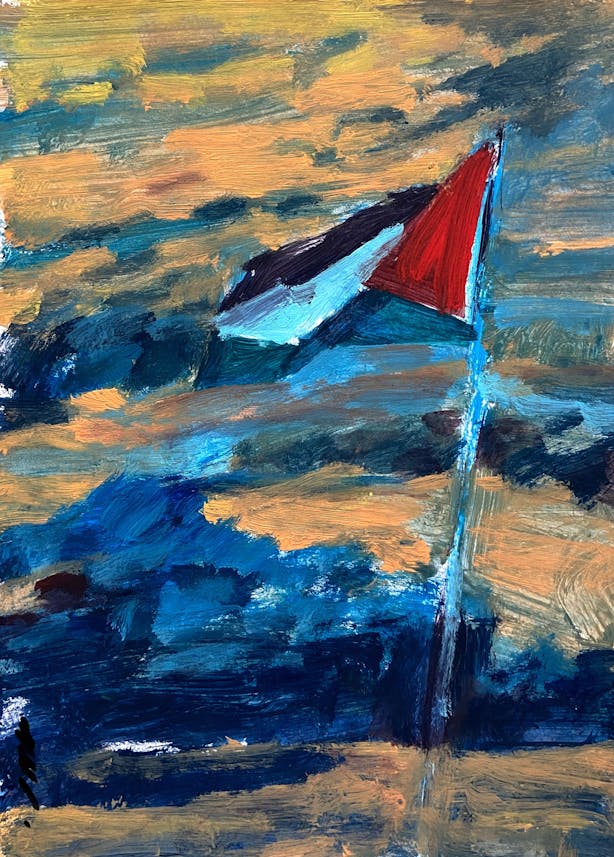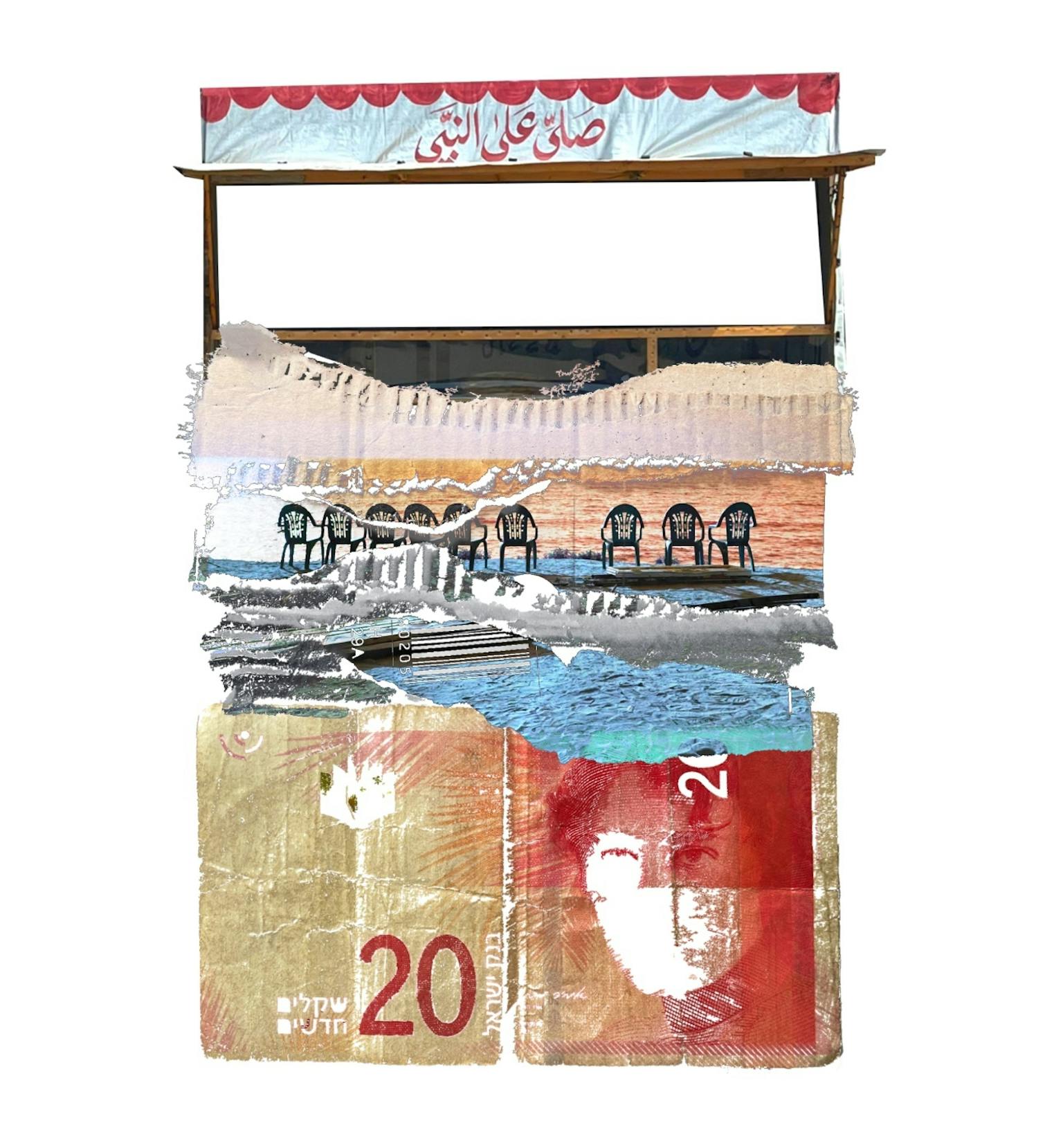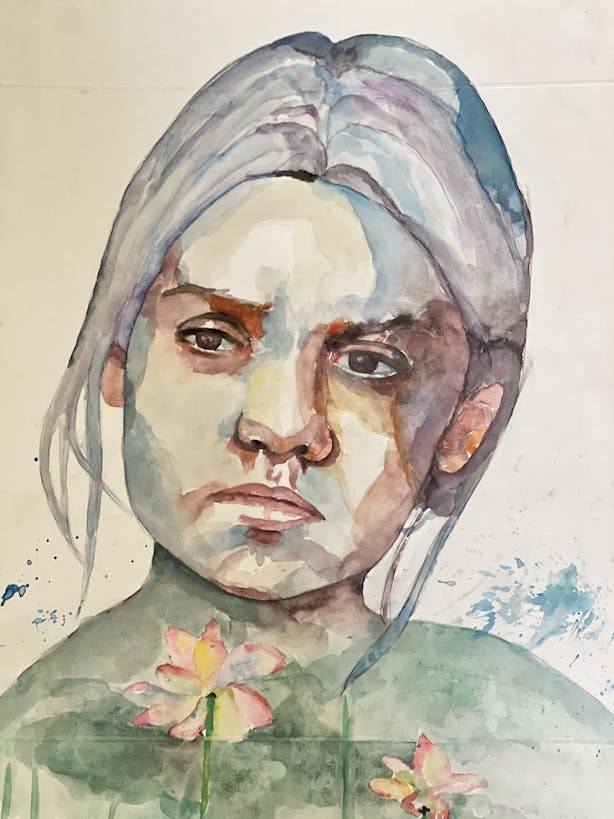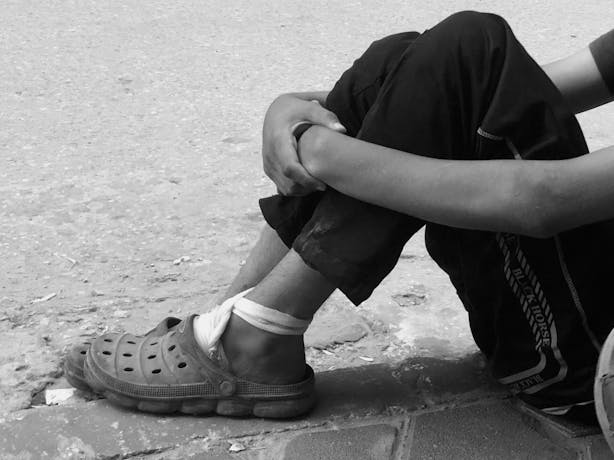
- Writing Gaza
Writing Gaza
Omar Berrada & Shivangi Mariam Raj
Written on 7 August 2025
I am writing from the balcony of the house we have been renting since our family’s home was fully destroyed. I am sitting on a leather armchair that the renter generously left us. I shiver whenever I accidentally touch the rusty arm of the chair, yet my fear of re-experiencing loss has prevented me from buying a new one. The noise of life under genocide mixes with sounds of nature. People fight over drinking water lines, the F16 drops its weight, and our neighbour’s sobbing over the killing of her husband pervades my soul. At the same time, the chants of seagulls and pigeons and the sea’s roar never fail to sneak into my ears. When I raise my head from my notebook, I am faced with largely destroyed buildings that are still inhabited. Overwhelmed with stress, I shift my gaze to the left. Fishers are in their boats and people are swimming while the warships in front of them continue throwing bombs. The shore is covered with displaced people’s white tents and those who are having foodless picnics. Beneath the balcony, people are waiting for empty aid trucks to get a free ride to Zikim crossing point or Al-Nabulsi Square. An hour later, as I am enjoying the sunset, I spot some teenage boys walking in the street carrying a 25 or 50-kilo bag of flour on their backs. When night falls, the only lights I recognise are from Al-Majdal city. Although I cannot see anything, I can still hear the clamour; I can still imagine the scenes. My stomach growls grow louder than the devastating noise, louder than nature. My fear of this unknown death that dwells in my stomach now is what makes me hold my notebook and write those words, but it also makes me wonder if there is any use for them. Will my words protect me from starving to death?

Samaa Abu Allaban, Tent for Everything (2025)

Omar Berrada & Shivangi Mariam Raj

Shahd A. Alnaami

Haidar Al Ghazali